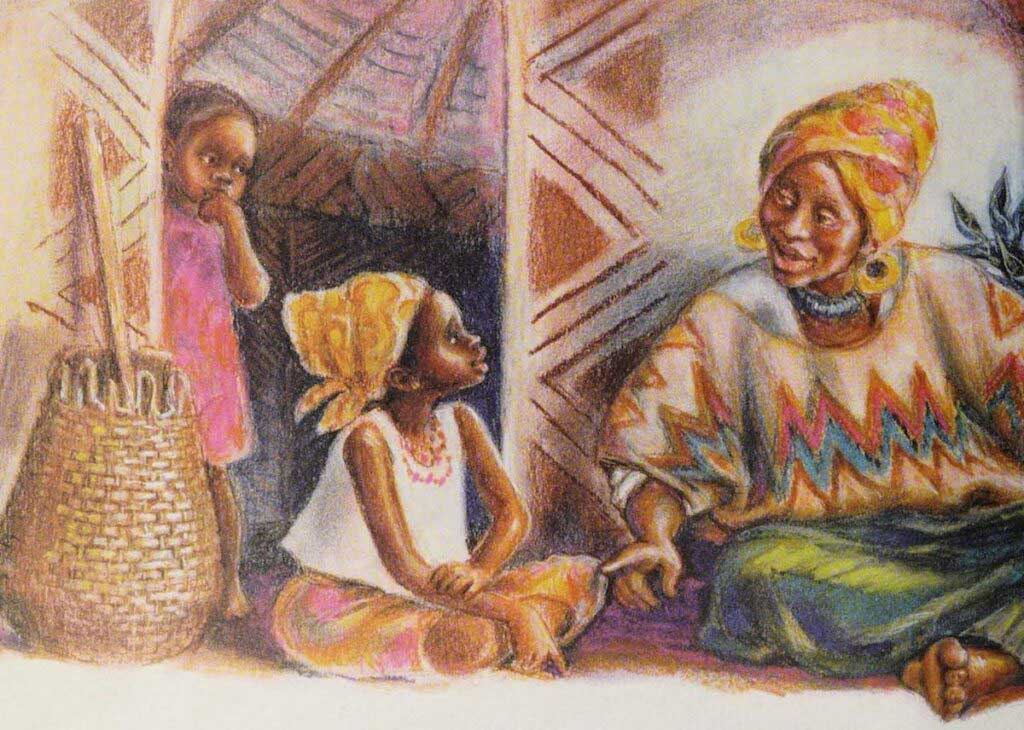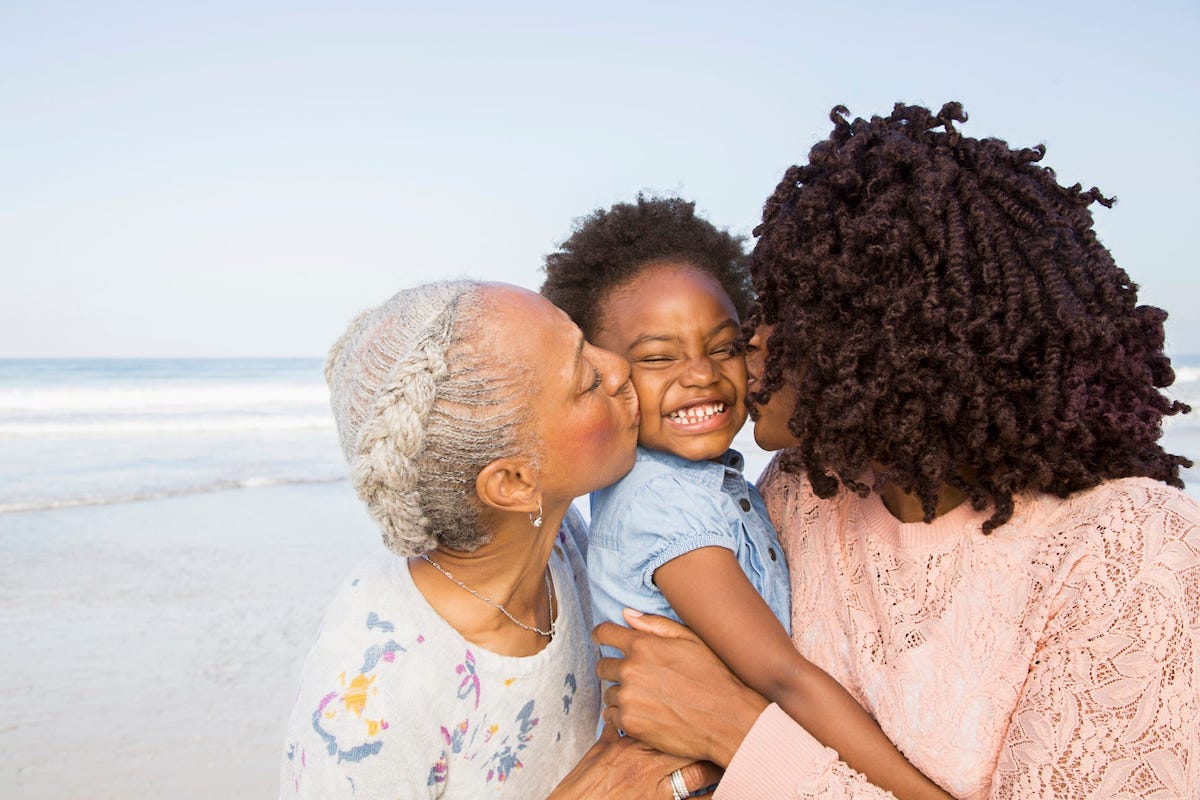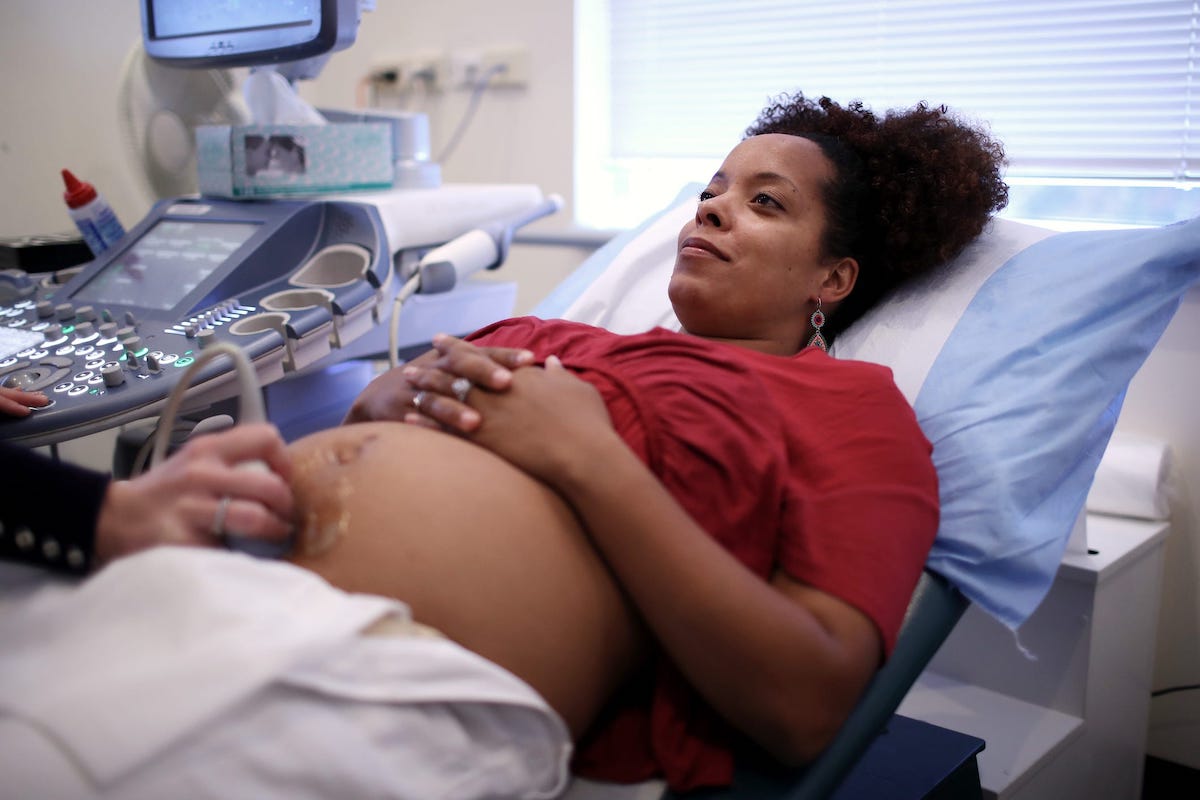My journey to motherhood began in a very uneventful way, and my husband and I joyfully anticipated the arrival of our son, Quentin, in 2010. However, our plans were woefully interrupted during a regular prenatal check up, and I delivered my first son four and a half weeks early by emergency cesarean section. He weighed in at a mere 4 pounds, 8 ounces. I thought I had taken all the precautions, read all the books, and followed all the rules. But what I survived in those days marks one of the worst events of my life. It felt like an out-of-body experience.
I was in critical condition after developing severe preeclampsia, a life-threatening pregnancy and postpartum-related complication that can include high blood pressure, high levels of protein in the urine, and damage to kidneys or other organs. Preeclampsia can result in stroke, seizures, organ failure, or even death to the birthing person and/or their baby.
What I did not realize was that I, as a Black woman, was at a higher risk of developing preeclampsia. According to the Preeclampsia Foundation, preeclampsia is one of the most common pregnancy and postpartum disorders, impacting between 5% and 8% of all pregnancies. However, the preeclampsia rate of Black women is 60% higher than for white women, and they are also more likely to develop a severe case of preeclampsia. For context, I birthed my son 13 years ago, yet preeclampsia and eclampsia is the leading cause of maternal death for Black women today. They are 5 times more likely to die of preeclampsia and eclampsia than white women.
Let’s back up a bit.
One of the joys I experienced in my first pregnancy was being pregnant in community. It seemed as if all of our friends and peers were starting families at the same time, and I distinctly remember taking before and after pictures with a few friends who were pregnant at the same time I was, and the excitement was palpable. Our babies would have built-in besties. We were so excited. Yet our deliveries had something else in common — something insidious that even now the realization of causes me to shudder. We all experienced some sort of negative pregnancy-related concern or outcome. From preeclampsia to gestational diabetes, we all dealt with something that adversely impacted our birthing experience. The research side of my brain began to tingle as I thought about our experiences. I had recently embarked on my doctoral journey (I found out I was pregnant a month after I began my program) and wanted to explore maternal and infant health from a psychological perspective.
Drilling down into the data, I began to read article after article discussing the racial disparities in maternal health. One piece of evidence: an infant born to a Black, college-educated woman is twice as likely to die before their first birthday compared with an infant born to a white woman with a high school diploma or less. While finding a potential explanation for this phenomenon I was witnessing was helpful to building my case academically, it was terrifying because I was experiencing it in real time. My peers and I all have advanced degrees, we all engaged in prenatal care through our private insurance, we enjoyed a reasonably secure level of socioeconomic stability, yet none of it protected us from being included in the statistics I read on my computer screen. Fortunately — and I use that term regrettably as so many families have lost birthing parents and infants — my peers and I survived to tell our stories and have the ability to hold our healthy children.
As I continued to search, it became clear that there had to be something about our particular experiences as Black women in America that skewed our outcomes. These factors formerly thought to be protective based on both research and upbringing were failing us. Education, income, prenatal care, insurance status, environment, and other social determinants of health were supposed to help close the gaps that discriminatory practices create both institutionally and personally in the lives of Black and brown people who attained them. Right?
Not exactly — well, not for Black families, that is. Research is illuminating just how deadly this assumption is. Comparing income specifically, Black women and their babies are still disproportionately more likely to die than white women and their babies even when they are wealthy. What is the driving force behind the root causes of maternal and infant mortality in the United States? It has to be something we are all exposed to regardless of whether we are conscious of it or not. It’s something that is embedded and interwoven into the fabric of our society that isn’t visible (or else we’d do something about it, right?).
Before I share with you what it is, let’s talk about what it isn’t.
Research comparing maternal and infant mortality risk and rates by race has been the standard for decades. However, race (as we observe it visually) isn’t what increases risk and rates. If this were the case, a group of people who were experiencing high risk and rates in America would experience similar risks and rates in comparable societies.
Consider this: there is literature citing the experience of Black birthing people who have immigrated to the United States as observed in birth weight. Low birth weight is a critical indicator of infant mortality. Foreign-born Black women have birth weights similar to U.S. white women. However, birth weight declines significantly as generations of Black birthing people assimilate to the United States. There is something unique to the experience of being born Black in America that is disparately creating an environment of reproductive harm and disadvantage and killing Black birthing people and their babies.
It is racism and the lived experience of racism, not race, that drives maternal and infant mortality rates for Black birthing people and their infants in the United States. My colleague and fellow champion Dr. Joia Crear-Perry eloquently lends her voice to this as well: “As a Black mother, I cannot buy or educate my way out of dying at three to four times the rate of a white woman in the U.S. The inequity in maternal mortality rates persists regardless of our income or education status. Racism is the risk factor, not Black skin. There is no ‘Black’ gene.”
The CDC states that 84% of deaths related to pregnancy are preventable and can happen up to a year postpartum. As mentioned above, Black women are three times more likely to die from pregnancy-related complications than white women. How many of those deaths are preventable? Deaths from dismissal of symptoms and pain, from incorrect dosages and poorly performed procedures, deaths from lack of access to respectful and equitable care, deaths from negligence and provider bias.
My lived experience was the culmination of a high-risk pregnancy complication coupled with dismissal by members of my medical team that resulted in my feeling myself being cut open during my emergency cesarean section. My fear of being labeled a difficult or hysterical patient (which I was labeled as anyway) prevented me from advocating for myself during my delivery. This fear also kept me from reaching out for help when I first had the disturbing feeling that something wasn’t right in those last days of my pregnancy. My advocacy work centers the lived experiences of Black and brown birthing people and equipping and empowering them to be their own advocates. My hope is that in the near future, respectful, compassionate maternity care will be the norm and that birthing people of color won’t have to bear the burden of ensuring their own safety in birthing spaces regardless of their health condition or status.
So how can we mitigate and hopefully eliminate these outrageous statistics? Champion and support policies like the Momnibus, the Maternal CARE Act, and the MOMS Act that specifically address the Black maternal health crisis in America. Change has to happen systemically, as that is where the root causes of Black maternal health inequity occur. Speak up and out and amplify the voices of people of color who are engaged in the work, including midwives, doulas, and birth workers of color. Donate to and support the funding of community-based organizations that are connected to and serving communities of color but are often underfunded and under-resourced. Advocate on behalf of these and other organizations that are committed to the health and well-being of Black birthing people and their infants. And last but certainly not least, listen to and believe Black women and birthing people. It is literally the difference between life and death.
Community Guidelines





















Log in